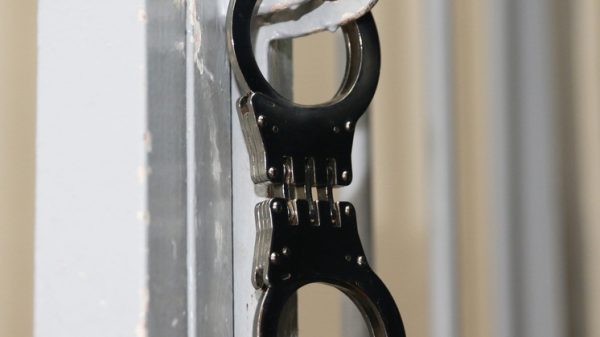Protesters have turned out in huge numbers across Myanmar, a day after police instigated the most violent scenes yet in demonstrations against a military coup that removed civilian leader Aung San Suu Kyi.
An estimated 100,000 people gathered in the commercial capital Yangon on Wednesday, according to witnesses, with many more marching across the country.
A day earlier, tens of thousands demonstrated in major cities and smaller towns in defiance of a ban on gatherings in some areas, with police using water cannon, rubber bullets and live rounds against them. One woman remains in a critical condition after being shot in the head in the capital Naypyidaw.
In Loikaw, the state capital of Kayah, about 40 police joined protesters on Wednesday and held a banner saying: “Members of Myanmar police force (Kayah state) stand with civilians.”
Other officers waved posters that read: “We do not need military dictatorship” and raised three-finger salutes, a symbol of resistance against the military.
At a separate protest in the city of Mawlamyine, a single officer moved to join protesters. On Tuesday, about 20 police switched sides at four different sites – at Pathein, Naypyidaw, Myeik and Magway.
Protesters in Yangon have largely adhered to a curfew imposed from 8pm to 4am under section 144 of Myanmar’s colonial-era Penal Code – turning instead to pot and pan banging from the safety of their homes – but have defied the ban on large gatherings.
The United States and United Nations condemned the use of force against protesters, who demand the reversal of the coup and the release of Aung San Suu Kyi and other detained leaders of her National League for Democracy (NLD) and activists.
Play Video
0:59
Myanmar: gunfire heard as police and protesters clash – video
“We cannot stay quiet,” youth leader Esther Ze Naw told Reuters on Wednesday. “If there is blood shed during our peaceful protests, then there will be more if we let them take over the country.”
In Naypyitaw, hundreds of government workers marched in support of a civil disobedience campaign that has been joined by doctors, teachers and railway workers, among others.
Protesters were also hurt in Mandalay and other cities, where security forces used water cannon as well. State media reported injuries to police during their attempts to disperse protesters, who were accused of throwing stones and bricks.
The US State Department said it was reviewing assistance to Myanmar to ensure those responsible for the coup face “significant consequences“.
“We repeat our calls for the military to relinquish power, restore democratically elected government, release those detained and lift all telecommunication restrictions and to refrain from violence,” spokesman Ned Price said in Washington.
The United Nations called on Myanmar’s security forces to respect people’s right to protest peacefully. “The use of disproportionate force against demonstrators is unacceptable,” Ola Almgren, the UN representative in Myanmar, said.
Three-finger salute: Hunger Games symbol adopted by Myanmar protesters
Read more
The protests are the largest in Myanmar for more than a decade, reviving memories of almost half a century of direct army rule and spasms of bloody uprisings until the military began a process of withdrawing from civilian politics in 2011.
The Assistance Association for Political Prisoners said nearly 60 people were arrested across Myanmar on Tuesday.
Myanmar’s army took power citing unsubstantiated allegations of fraud in a 8 November election that Aung San Suu Kyi’s NLD party won in a landslide. The electoral commission had dismissed the army’s complaints.
Late on Tuesday, police raided the NLD’s headquarters in Yangon during the hours of a military-imposed curfew. The raid was carried out by about a dozen police, who forced their way into the building in the commercial capital after dark, elected lawmakers said.
Aung San Suu Kyi’s party had been due to start a second term on the day of the coup.
Alongside the protests, a civil disobedience movement has affected hospitals, schools and government offices. Staff from the electricity and power ministry in Naypyitaw were among the latest to join the civil disobedience movement on Wednesday.
‘We’re not brainwashed’: a week of turmoil in Myanmar
Read more
Protesters’ demands now go beyond reversing the coup.
They also seek the abolition of a 2008 constitution drawn up under military supervision that gave the generals a veto in parliament and control of several ministries, and for a federal system in ethnically diverse Myanmar.
Aung San Suu Kyi won the Nobel peace prize in 1991 for campaigning for democracy and spent nearly 15 years under house arrest.
The 75-year-old faces charges of illegally importing six walkie-talkies and is being held in detention until 15 February. Her lawyer said he had not been allowed to see her.
Aung San Suu Kyi remains hugely popular at home despite damage to her international reputation over the plight of the Muslim Rohingya minority.

























































Свежие комментарии